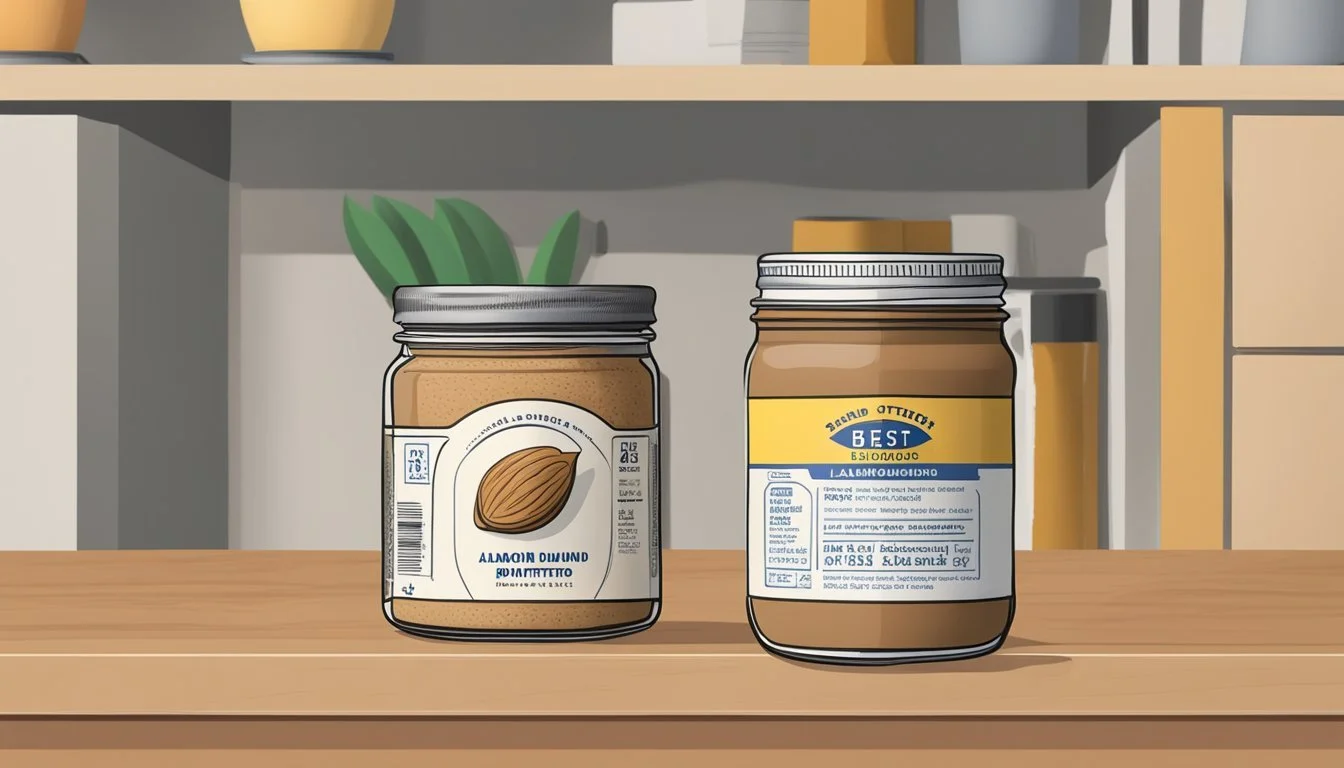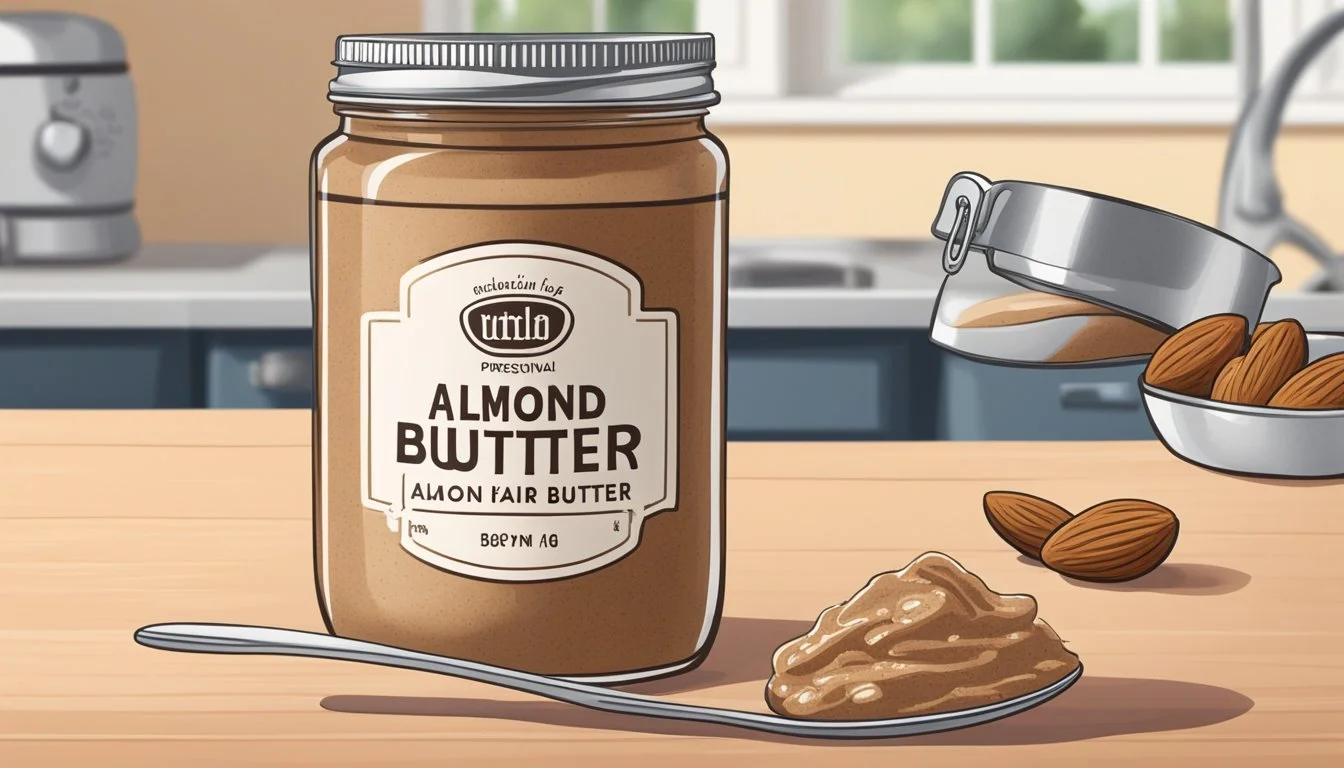Does Almond Butter Go Bad?
Understanding Shelf Life and Storage Tips
Almond butter, a popular alternative to traditional peanut butter, possesses a notable shelf life but is not immune to spoilage. As a product derived from nuts, almond butter contains oils that can eventually go rancid, leading to a decline in both its taste and nutritional quality. Unopened almond butter typically remains safe to eat for several months past its expiration date, with refrigeration potentially extending its longevity to one year beyond this date. However, it is important for consumers to recognize the signs of spoilage to ensure they are consuming a product that is both safe and enjoyable.
Once opened, almond butter's freshness varies depending on storage conditions. When kept at room temperature, it can last for 3 to 5 months. Refrigeration can extend its edible period up to 9 months, helping to preserve its taste and prevent spoilage. To further guard against rancidity and contamination, almond butter should be stored in a tight-sealed container away from direct heat and light. If almond butter develops an off smell, a change in texture, or visible mold, it should be discarded as these are clear indicators that the butter has gone bad.
Understanding Almond Butter
Almond butter is a nutritious spread made from ground almonds, known for its healthy fats and protein content.
Composition and Nutritional Profile
Almond butter is rich in healthy fats, protein, magnesium, and vitamin E, making it a beneficial addition to many diets. Unlike some other spreads, almond butter contains no dairy, making it a suitable alternative for lactose-intolerant individuals. It typically has a smooth or slightly gritty texture, depending on the processing.
Different Types of Almond Butter
There are two primary types of almond butter: homemade almond butter and store-bought almond butter. The former is made by blending almonds until they release their oils and become a spread, while the latter can contain additional ingredients such as preservatives and stabilizers to enhance shelf life and texture.
Almond Butter vs. Other Nut Butters
Almond butter is often compared to peanut butter and cashew butter. Each nut butter offers different nutritional benefits and flavors. Almond butter is a great alternative to peanut butter for those looking for a spread with a subtler taste and more vitamin E.
Shelf Life Fundamentals
The shelf life of almond butter depends on whether it's homemade or store-bought, as well as if it contains preservatives. Typically, an unopened jar of store-bought almond butter can last several months past its best-by date or expiration date, while homemade versions have a shorter life of about two weeks in the fridge.
Signs of Spoilage
Signs of spoilage in almond butter include a rancid smell, strange taste, and visible mold or discoloration. If the almond butter smells off or has discolored spots, it should not be consumed.
Factors Affecting Freshness
The freshness of almond butter can deteriorate through improper storage, such as exposure to light, heat sources, and moisture. Keeping almond butter in an airtight container and away from heat sources can extend its freshness. Once opened, it should be stored in the fridge to reduce the risk of it becoming rancid.
Health Risks of Consuming Spoiled Almond Butter
Eating spoiled almond butter poses health risks due to the potential growth of bacteria and mold. Consuming rancid nut butter can lead to foodborne illnesses. If almond butter appears or smells like it has gone bad, it is not safe to consume.
Storage Recommendations
Proper storage is critical in preserving the quality and extending the shelf life of almond butter. This section provides detailed guidance on various storage methods and conditions.
Optimal Storage Conditions
Almond butter thrives in a cool, dark place to maintain its freshness. Exposure to heat and light accelerates the degradation process, potentially causing rancid flavors.
Storing Opened vs. Unopened Jars
Unopened Jars: Store these in a pantry or cupboard, away from direct sunlight.
Opened Jars: After opening, ensure the lid is sealed tightly between uses to prevent contamination.
Refrigeration vs. Room Temperature Storage
Refrigeration: Extends the shelf life of almond butter, keeping it fresh for up to 9 months post-opening.
Room Temperature: An opened jar is viable for about 3-5 months if kept in a cool and dark environment.
Tips for Extending Shelf Life
Airtight Containers: Transfer almond butter to an airtight container to minimize exposure to oxygen.
Dark Place: Always store almond butter away from light, which can break down oils and alter flavor.
Freezing Almond Butter
Freezing can preserve almond butter beyond the typical refrigeration period. Freeze in airtight, freezer-safe containers or bags to guard against freezer burn.
Best Practices for Homemade Almond Butter
Homemade almond butter often lacks preservatives, meaning refrigeration is essential. Consume or freeze it within two weeks for optimal taste.
Handling and Preventing Oil Separation
Oil separation is natural; simply stir the almond butter to achieve a homogeneous consistency. For commercial butters with added palm oil, separation may occur less often.
Shelf Life Enhancement Techniques
Pasteurized Almonds: Using pasteurized almonds can reduce the risk of contamination and extend shelf life.
Refrigerate After Opening: Always refrigerate almond butter after opening to maximize its shelf life.
Usage and Applications
Almond butter is versatile, enriching meals with its nutty aroma and providing healthy fats, protein, vitamin E, and magnesium. It can be a staple in both savory and sweet dishes, making its application in kitchens extensive.
Incorporating Almond Butter in Meals
Almond butter can be easily integrated into various meals throughout the day. For breakfast, it serves as a nutritious spread on toast or can be stirred into oatmeal for added richness. It's also an excellent addition to smoothies for a boost of protein and healthy fats.
The Role of Almond Butter in a Healthy Diet
Rich in nutrients, almond butter contributes to a healthy diet by offering healthy fats, protein, vitamin E, and magnesium. These nutrients support heart health and bone strength, making almond butter not just a tasty, but also a healthful choice.
Alternatives to Almond Butter
While almond butter is a popular nut butter, there are other options for those seeking variety or managing allergies. Peanut butter and cashew butter are common alternatives, each varying slightly in taste and nutritional content but still providing similar applications.
Creatively Using Expired Almond Butter
Although spoilage is a concern, slightly past-date almond butter may still be usable for purposes other than consumption, such as homemade beauty treatments or in art projects as a non-toxic adhesive. Ensure the almond butter does not exhibit signs of spoilage like a rancid smell or mold.
Purchase and Selection Tips
When selecting almond butter, one should consider freshness, texture, ingredients, and the printed date to ensure peak quality, whether choosing homemade or store-bought options.
Evaluating Almond Butter Quality at Purchase
To determine the quality of almond butter on the shelf, one should check for a creamy or smooth texture visible through the packaging. The presence of oil separation can be normal, but they should avoid any signs of discoloration or an unusual odor. The ingredient list ought to be scrutinized for freshness, ensuring that almonds are the primary, if not sole, component without unnecessary preservatives or additives.
Deciphering Labels and Expiry Dates
A critical aspect of evaluating almond butter involves understanding the labels. The best-by date is typically an indication of when the product will be at its peak quality. It should not be confused with the expiry date, which is when the product may become unsafe to consume. The printed date on the container can guide consumers on how long the almond butter will stay fresh before opening.
Choosing Between Homemade and Store-Bought
Homemade almond butter offers control over ingredients and craftsmanship, resulting in a fresh product without preservatives. Meanwhile, store-bought almond butter often comes with convenience and a longer shelf life due to stabilizers. Buyers should consider their preferences for a natural product against the convenience of prolonged shelf life.
FAQs on Almond Butter Shelf Life
How long does almond butter last unopened? Unopened almond butter typically has a shelf life of about 6 months past the expiration date on its label.
Can extending the shelf life by refrigerating almond butter? Refrigerating unopened almond butter can extend its shelf life up to 1 year beyond the expiration date. Once opened, it should ideally be consumed within 3 to 5 months if stored at room temperature, and refrigeration can preserve its quality for up to 9 months.
Is it possible to freeze almond butter? Yes, almond butter can be frozen to extend its shelf life. Ensure it's sealed properly to avoid freezer burn.
What are the signs of spoilage in almond butter? The main signs that almond butter has gone bad include an off smell, rancid taste, change in texture, visible mold, or oil separation that doesn’t mix back in.
How should one store almond butter to ensure maximum freshness? To maintain freshness, store almond butter in a cool, dark place if unopened. Once opened, it is recommended to keep it in a refrigerator, tightly sealed.
Remember, these guidelines are for optimal freshness and quality and do not account for potential extended edibility under certain conditions. It's always crucial to rely on one's senses; if in doubt, it's safer to dispose of any food product that may have spoiled.
Conclusion
Almond butter can spoil, particularly if not stored properly. Consumers should be aware that its shelf stability is influenced by various factors such as packaging, exposure to air, and temperature. To maintain lasting freshness, here are pivotal storage tips:
Unopened almond butter: Keep in a cool, dry place, away from direct sunlight. Shelf life can extend to six months past the expiration date.
Opened almond butter: Store in an airtight container to minimize exposure to air and moisture. At room temperature, it remains fresh for 3 to 5 months. Refrigeration can preserve freshness for up to 9 months.
Signs of spoilage include:
Odor: A rancid or sour smell indicates it's time to discard the almond butter.
Texture: Oil separation is natural, but if the consistency is off or if it's too dry, it might be spoiled.
Mold: Any visible mold growth is a clear signal that the almond butter should no longer be consumed.
By adhering to these guidelines, customers can enjoy the rich taste and nutritional benefits of almond butter while minimizing the risk of spoilage. Remember to always check for any changes in smell, texture, or appearance before consumption.






